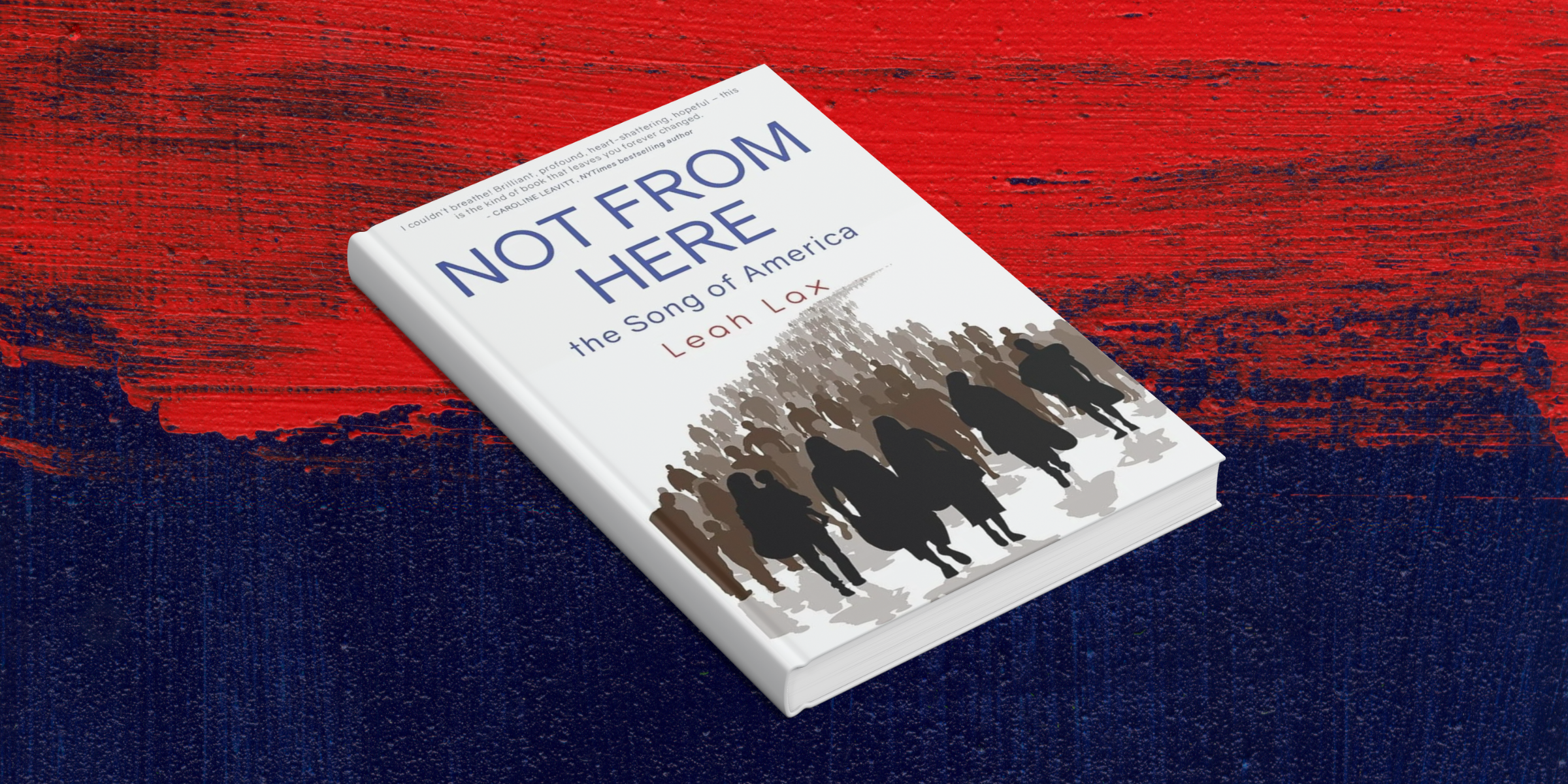Books
‘Not From Here: The Song of America’
Houston author and librettist Leah Lax was commissioned to write a libretto of immigrant stories for The Refuge, an opera that debuted with the Houston Grand Opera in November 2007. As part of her research, Lax spent a year interviewing 123 immigrants—both documented and undocumented—living in greater Houston. Now, she presents six of those stories in Not From Here: The Song of America, accounts that humanize and illuminate the various immigrant experiences in the United States.
The newcomers profiled range from those who escaped violence in their home countries to those who came to the United States for economic or social opportunities. Yet all of them share a common hope: to start fresh and achieve their versions of the American dream. Woven into these narratives are stories from Lax’s personal and family histories, creating a unique hybrid memoir.
Lax skillfully distills the complex narratives of her interviewees’ journeys to the United States. She instructed them to begin their stories with these direct words: “I was born…”
The resulting chapters are their own chrysalises, featuring tales that transform the teller, writer and reader.
Known for her previous book, Uncovered: How I Left Hasidic Life and Finally Came Home, a memoir about living for three decades in the Lubavitch community in Brooklyn while a closeted lesbian, Lax is a magnificent storyteller. She infuses her narrative with empathy as she intersperses the stories of these immigrants with her own family’s story of immigration as well as her immersion in Hasidic life as a teenager.
Lax opens Not From Here with Luisa’s story—a young woman who fled sexual violence and death threats in El Salvador. Luisa (a pseudonym) and a friend had reached Mexico, but the latter was too ill to continue the journey. Two frightening scenarios played out in Luisa’s mind: She could turn back or put her fate in the hands of a greedy trafficker to enter Texas.
After a harrowing journey, Luisa eventually reached Houston and since then has played a nerve-wracking game of hide-and-seek with the “migra,” Spanish slang for U.S. Immigration and Customs Enforcement. Lax informs readers that she ended Luisa’s section of the libretto “on the great rising assertion of her words: ‘If they send me back, I will start again, because now I know how.’ ”
Lax documents Soviet Jewish immigration by returning to the ultra-Orthodox Brooklyn community she once called home to interview Manya, a refugee from what is now Ukraine. In sharing Manya’s story, Lax spotlights the early years of the Soviet Jewry movement, noting
that when the Soviet oppression of Jews ended in the late 1980s and early 1990s, the result was historic Jewish migrations to Israel and the United States.
Lax learns that Manya had to intuit as a child that she was Jewish. Indeed, Manya shares that she was sternly instructed never to mention her father using Yiddish words or that her grandmother baked matzah, since the Soviet government explicitly forbade holding a Passover seder.
Manya’s description of persecution brings Lax to utter a quiet prayer, her first in years: “Oh, let this work, this opera, this book, be a seder—a sumptuous meal shaped by memory, celebrating American freedom. Let our freedom be bright.”
Long after finishing Not From Here, readers will ponder Lax’s observation: “What are we without our stories?” Lax has written a beautiful book that offers complicated yet resonant answers to one of the most prominent issues in the United States today. And as the singers in the opera’s plaintive finale proclaim, “We are you. Our stories are your stories.”
Judy Bolton-Fasman is the author of Asylum: A Memoir of Family Secrets.










 Facebook
Facebook Instagram
Instagram Twitter
Twitter
Harriet Katz says
The author reports in a letter to the editor of Hadassah magazine that advanced marketing for not from here: the song of America advance marketing had immediate request for a review materials from editors at the New York Times, L magazine, and Oprah daily among other outlets. The daily beast requested an essay which they received and happily approved. “ One month into the marketing campaign, war broke out in Gaza. Every commitment, inquiry and request evaporated. Editors ghosted us. The daily beast canceled my essay four days before posting date.…” I propose we all go out and purchase copies of Ms. LAX’s Book.